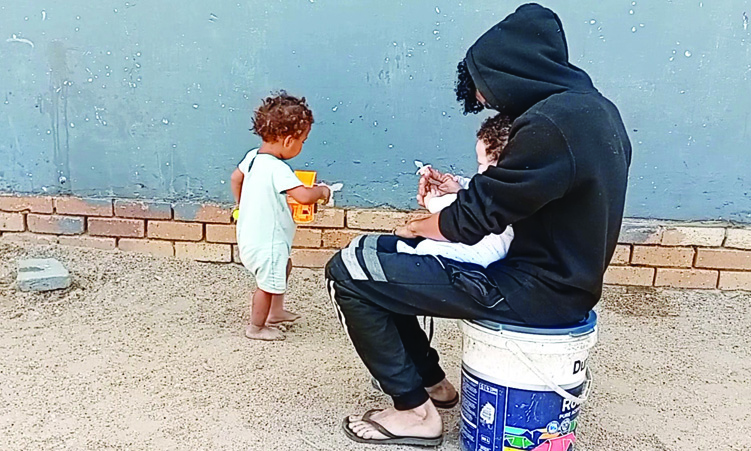ALTHOUGH Namibians start having sex at a younger age, they have fewer sex partners and one in every two use condoms regularly, a new study reveals.
The two-year study by the Johns Hopkins University Heath Communication Partnership, launched in Windhoek yesterday, revealed mixed results. It was funded by the US President’s Emergency Plan for AIDS Relief in Namibia.Some 4 200 respondents from Gobabis, Grootfontein, Omaruru, Oniipa, Oshikuku, Otjiwarongo and Rehoboth were interviewed.It found that although Namibians knew the basics about HIV transmission, prevention and available services, they were selectively adopting behaviours that reduce their risk of contracting the disease.”While respondents reported to have had sex at 19 years in 2003, this dropped to 18 in 2005.Fewer people reported deliberately avoiding sex (abstaining) to avoid infection,” the report said.According to the study, one in every three respondents said they had reduced their total number of sexual partners in comparison to the previous year.”Overall, one in two Namibians reported to use a condom always or usually,” it said.HIV testing also continued to increase across the sites with close to half of those surveyed tested for HIV.”This type of in-depth research really helps us to design appropriate interventions for HIV,” said Nahum Gorelick, JHU/HCP Namibia Country Representative.JHU/HCP chief research officer Rajiv Rimal said the findings reflect the complexity involved in behaviour change communication, research and practice.He said key would be to approach the HIV problem through well-informed behaviour change programmes.”Preventing new infections is the only viable long-term solution we have to the AIDS epidemic,” he said.It was funded by the US President’s Emergency Plan for AIDS Relief in Namibia.Some 4 200 respondents from Gobabis, Grootfontein, Omaruru, Oniipa, Oshikuku, Otjiwarongo and Rehoboth were interviewed.It found that although Namibians knew the basics about HIV transmission, prevention and available services, they were selectively adopting behaviours that reduce their risk of contracting the disease.”While respondents reported to have had sex at 19 years in 2003, this dropped to 18 in 2005.Fewer people reported deliberately avoiding sex (abstaining) to avoid infection,” the report said.According to the study, one in every three respondents said they had reduced their total number of sexual partners in comparison to the previous year.”Overall, one in two Namibians reported to use a condom always or usually,” it said.HIV testing also continued to increase across the sites with close to half of those surveyed tested for HIV.”This type of in-depth research really helps us to design appropriate interventions for HIV,” said Nahum Gorelick, JHU/HCP Namibia Country Representative.JHU/HCP chief research officer Rajiv Rimal said the findings reflect the complexity involved in behaviour change communication, research and practice.He said key would be to approach the HIV problem through well-informed behaviour change programmes.”Preventing new infections is the only viable long-term solution we have to the AIDS epidemic,” he said.
Stay informed with The Namibian – your source for credible journalism. Get in-depth reporting and opinions for
only N$85 a month. Invest in journalism, invest in democracy –
Subscribe Now!









